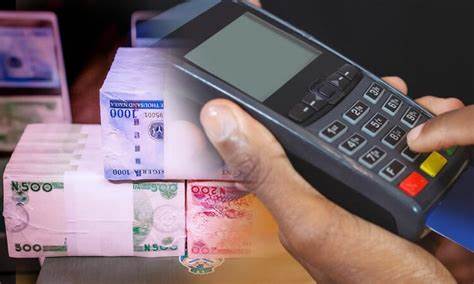The Central Bank of Nigeria (CBN) announced a significant policy regulating cash transactions through Point-of-Sale (POS) agents on Tuesday.
This initiative introduces a daily cash-out limit of N100,000 per customer, reinforcing the CBN’s commitment to a cashless economy while addressing fraudulent activities in agency banking.
Read also: CBN to fine banks N150 million for selling mint naira notes to currency hawkers
The vision behind the limit
The CBN’s decision, articulated in a circular signed by Oladimeji Taiwo, is part of broader measures to enhance operational standards among financial service providers.
The apex bank aims to ensure that all stakeholders comply with these new guidelines immediately.
According to the circular, “Issuers shall set a cash withdrawal limit (cash-out) per customer… to ₦500,000.00 per week”.
This policy also sets a cumulative daily cash-out limit of ₦1.2 million for POS agents, emphasising accountability and transparency in financial transactions.
Read also: CBN cracks down on Moniepoint, OPay with ₦1 billion fine each over regulatory violations
Impact on agency banking
This regulatory move is expected to streamline operations within the agency banking sector. By mandating that transactions be conducted through float accounts maintained with principal institutions, the CBN aims to eliminate unauthorised activities and fraud.
The circular further stipulates that agent banking services must be distinct from other merchant activities, ensuring a focused approach to financial services.
These policies have been shaped by the CBN’s founder and ongoing leadership. Their vision reflects a desire to modernise Nigeria’s financial landscape while safeguarding consumers against potential abuses within the system.
As stated in the announcement, “All principals of agents are to comply with the following directives immediately,” highlighting the urgency and importance of adherence to these new regulations.
While these changes are designed to enhance security and promote electronic payment systems, they may also pose challenges for POS operators and customers in areas with limited banking infrastructure. The CBN has acknowledged these potential impacts but remains committed to advancing Nigeria’s cashless economy.















